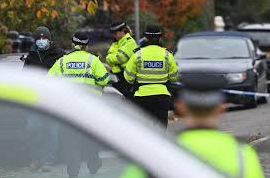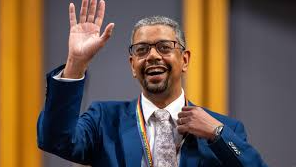
Following recent violent incidents in schools, union leaders call for increased safety measures and better youth services.
Union leaders have urged the Government to take immediate action to address rising violence in schools after a violent incident at The Birley Academy in Sheffield, where two adults and a child were injured. A 17-year-old boy was arrested on suspicion of attempted murder after the attack on Wednesday, which follows a stabbing incident just a week earlier at Amman Valley School in Wales, where two teachers and a pupil were injured.
Daniel Kebede, the general secretary of the National Education Union (NEU), condemned the violence, stating that it was unacceptable for staff and students to feel unsafe in their schools. He called for a public health approach similar to the one implemented in Scotland in the 1990s, which aimed to tackle youth violence comprehensively. Kebede emphasised the urgent need to reinvest in youth services that had once played a key role in preventing violence.
Patrick Roach, general secretary of the NASUWT teaching union, expressed concern for the wellbeing of both staff and students affected by the Birley Academy incident. He stressed the importance of providing adequate support for those impacted by such traumatic events.
While violent incidents involving weapons are still relatively rare in UK schools, unions have raised alarm about the increasing levels of disruptive behaviour and violence among pupils in recent years. A recent Government survey revealed that only 39% of pupils in England felt safe at school every day, a statistic that has sparked further concern over the state of school environments.
The Department for Education’s (DfE) research also found a decline in the number of school leaders and teachers who reported that their schools were “calm and orderly.” Tom Bennett, a behaviour advisor to the DfE, warned that violence in schools, although not frequent, was a significant indicator of deeper problems within school environments. Bennett highlighted that violence is only the “tip of the iceberg” and pointed out that teachers and students deserve safe and peaceful workplaces.
In response to the Sheffield incident, Education Secretary Gillian Keegan expressed her distress, offering her support to the school community. Keegan confirmed that the Government was in contact with the academy and extended her thoughts to those affected by the situation.
The Government has already committed resources to addressing youth violence, including funding 20 Violence Reduction Units across England and Wales. These initiatives have reached over 271,000 vulnerable young people through early intervention programmes. Additionally, the Government has invested £200 million into the Youth Endowment Fund to help identify effective strategies for preventing serious violence. Specialised support in schools is also being bolstered, with over £50 million dedicated to helping schools in areas where violence impacts children the most.
Despite these efforts, unions maintain that more must be done to ensure the safety of staff and pupils in schools, and they continue to push for a stronger, more comprehensive approach to combat youth violence and disruptive behaviour in educational settings.












Comments
Hello world!
Pic of the week: Sunset at margate beach
The first day’s journey was through the pink fields
The first day’s journey was through the pink fields
The first day’s journey was through the pink fields